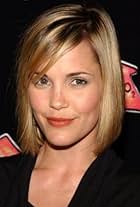APPLY FOR ADMISSION
FIRST YEAR MEISNER ACTING PROGRAM

BEGINS
SEPTEMBER 10TH

Call To Schedule an Interview
(917) 794-3878
Why Actors Need to Study Theater History

Plays are not like other forms of literature. I can pick up my tattered copy of The Great Gatsby, brew up a mug of tea, curl up in my favorite chair, and have something close to the experience that Fitzgerald originally imagined when he wrote the text: an individual encountering words on a page. The work was meant to be read.
Aristotle tells us that a great tragedy can achieve its effect without the benefit of public performance or actors, but I am not so sure. In the theater, our tools are space and time. The spoken word is just one way we shape these media. An important tool, no doubt. Perhaps the most enduring. But a performance also shapes space and time with the actors’ bodies, with gesture, with costume, and with music. Its contours are affected by the time of day, the arrangement of the theater space, the unique individuals who are gathered in the audience, and its relationship to the space and time outside the theater. A play operates on the full bodies and lives of its audience. It springs into being anew with each performance, and it takes the shape of the culture that creates it.
“An actor without insight into the history and context of the art form is limited, an incomplete artist whose work is ultimately diminished.”
A study of theater history is full of uncertain evidence. Even the things known about something like Greek Tragedy are, at best, an educated guess, cobbled together from fragmentary allusions in history, philosophy, and the visual arts. And the list of things we think we know is dwarfed by what we know we never will—melodies that were never noted down, movement that defied description, countless performances that were never recorded in written form or whose manuscripts have been lost to time.
But if I were deterred by the prospect of never-knowing, then I would not be in the theater. For all their uncertainties, the dramatic texts that have survived are great texts, full of vivid clues to these lost moments in space and time. For any serious actor, learning to listen to these clues is a skill just as important as technique and craft—this takes practice, presence, and a vast imagination. An actor without insight into the history and context of the art form is limited, an incomplete artist whose work is ultimately diminished. Without the certainty to know, we are left with the freedom to imagine, and this is where great theater begins.
Elliot B. Quick teaches theater history classes for actors at the Maggie Flanigan studio in New York, NY.
Recent Post
STUDENT TESTIMONIALS
“I was placed in the intense reigns of Charlie Sandlan. I became a better artist, actor, friend, sibling and daughter because of the studio. Even now, I crave the studio every day. What I learned is present in my work every day. I truly believe in everything they stand for.”

“Maggie taught me that I could control my work, my acting, and to throw all of the bullshit out that I had in my head about ‘what I should be doing’ and to just listen and respond honestly, in the moment. She gave me a craft. She is, quite simply put, THE BEST.”

“Maggie Flanigan taught me the true meaning of artistry, passion, and professionalism. I am certain that I continue to work as an actress because of my training with Maggie. At every audition and every performance, her guiding voice is with me. It is a gift beyond measure.”

“Maggie Flanigan is uncompromising, her instincts as a teacher are razor sharp. She doesn’t miss a beat”

“Maggie Flanigan has been one of the most important people in my artistic life. I want to work with Maggie trained actors. As an actor myself, she is my first source. I do not say this lightly, if you are serious about acting, and willing to work very hard, then go to Maggie.”

“Maggie helped me find my sense of truth, an actors greatest asset. Maggie is an expert at instilling that vital ingredient, which allows an actor’s potential to become limitless. My work will forever be rooted in the clarity and honesty she helped me develop.”

“After working for ten years, I did the 2 year program, and now feel that I have the tools I need to become the actor I’ve always dreamed of being. Maggie Flanigan instilled in me a clear sense of truth and a standard of perfection. I am a better actor because of this studio.”

“As an actor, the core of what you have to rely on is your sense of truth and humanity. Maggie allowed me to discover and embrace mine. Trusting my sense of humanity and truth has given me the ability to take risks in my work and my career decisions.”

“Maggie Flanigan has the unique ability to get an actor to the essence of what is true in a moment. She creates a safe and caring environment in which to work.”

“Maggie Flanigan introduced me to my own spirit and my own sense of Truth. Her passion for teaching and ability to communicate are rare gifts to any actor looking for a technique to set his or her talent free. Maggie’s voice has been the one constant guide in my career.”




